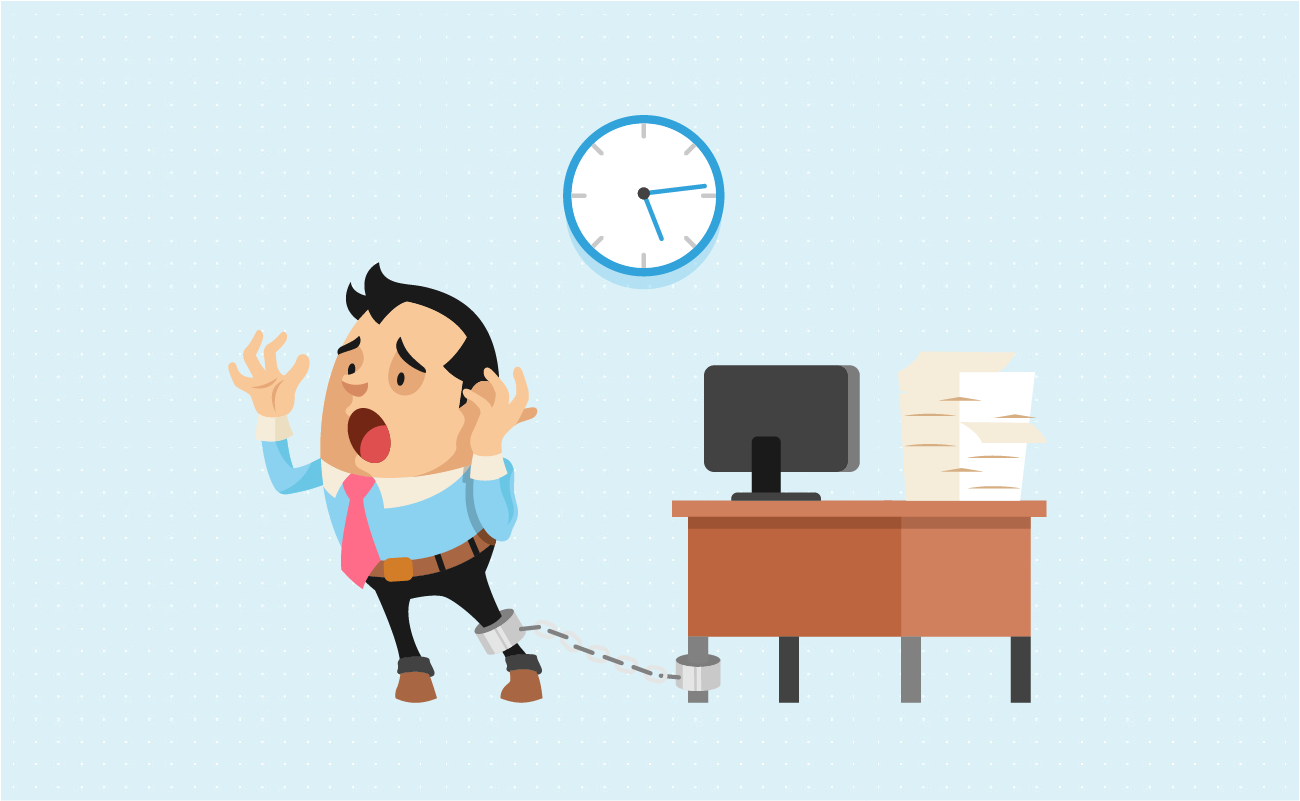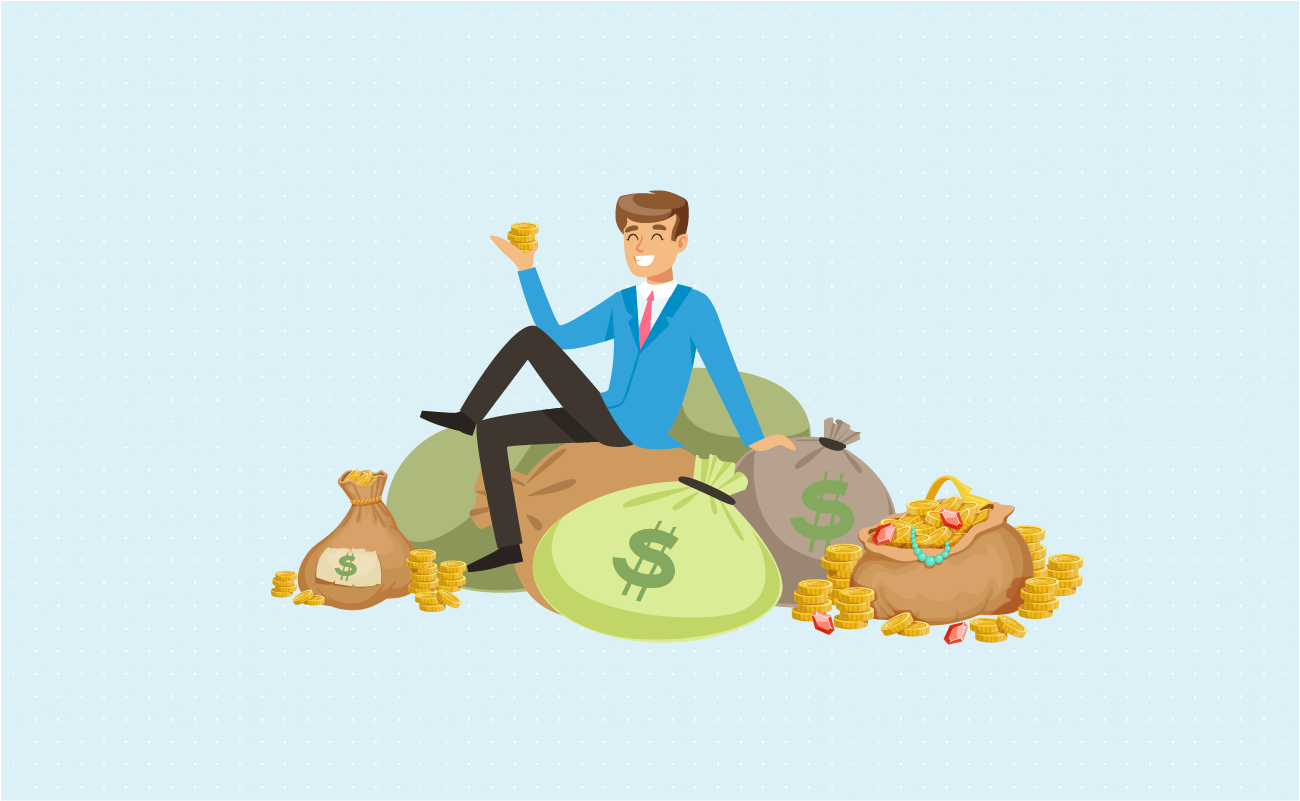Gaining wealth is a dream many people aspire to achieve. This is understandable, given how money is crucial in building decent and comfortable lives. Beyond our basic needs, money is inevitably tied to our social status, which gives us greater mobility with our choices in life. More purchasing power affords us many possessions, even the advantage of being well-respected.
In contrast, having meager resources may at least temporarily limit one’s opportunities, such as educational attainment, job choices, and even the type of mortgage you can qualify for. If you’re struggling with finances, it’s harder to feel confident about affording valuable things. This is especially stressful when you’re dealing with large long-term debt.

Temporary setbacks can lay the seeds for long-term success. Convex Capital Chairman Michael Driver stated if you wanted to make a successful entrepreneur you would first need to create a time machine to give them challenges and stress as a childhood so they would end up having more drive to overcome the adversity they felt in late childhood or early adulthood.
The concept of wealth and success is certainly subjective, but many modern studies tend to measure it by income, net worth, and intergenerational wealth. Thus, when it comes to money, we tend to exhibit certain emotions and behavior. Here’s a rundown of how money affects our emotions and the way we act.

Whether you attain success through hard work or mere luck (winning the lottery), money certainly affects the way you think and behave. Because we deem money as a valuable resource, we are inclined to worry about losing it.
An article by Shahram Heshmat, Ph.D. notes that the idea behind loss aversion is simple: Losing wealth is an expression of fear. And beyond this, accumulating more money suggests you have more to lose than to gain. Thus, the more wealth you have, the more vulnerable you become. Loss aversion means you can be more upset about losing $20 even if you find another $20 on a normal day. Dr. Heshmat is associate professor emeritus of health economics of addiction at the University of Illinois, Springfield.
“[L]oss aversion is an expression of fear… we tend to focus on setbacks than progress. Negative emotions… have a stronger impact than good ones, such as from receiving praise. As Charles Darwin once said, “Everyone feels blame more acutely than praise.”
-Shahram Heshmat, Ph.D.
In relation to focusing on setbacks, Dr. Heshmat emphasizes that people are more receptive to price increases than price drops. For instance, a study by Daniel Putler showed that between July 1981 to July 1983, a 10% increase in egg prices caused a 7.8% decrease in demand. In contrast, a 10% drop in egg prices led to only 3.3% increase in demand. This shows that consumers were so focused on the price increase that they were willing to cut back. Meanwhile, fewer consumers bought more eggs to take advantage of the price decrease.
For instance, let’s suppose you’re determined to buy a large and expensive house. On top of this, your business faced some challenges, leading to less profits and income. After checking your mortgage options, you find that you must settle for a less expensive house. In this example, scaling down to a smaller home may cause you psychological distress. If you’re used to wealth and getting what you want, this experience can be extra difficult.
Dr. Heshmat notes that for wealthy people, loss aversion often means the pain of losing your fortune beats the emotional benefit of gaining more wealth. This may also explain why the ultra-rich frequently become more vigilant and anxious about their fortune.

Price anchoring is used by sellers to establish a price point that customers can refer to. This influences consumer perception, which establishes the idea of how much certain products or services cost. Whenever you see a price tag that says “$100 now $75!”, $100 functions as the price anchor for a product. This strategy is meant to influence a consumer’s willingness to pay.
According to Psych Central, the anchoring effect is a kind of cognitive bias, where the use of a psychological benchmark greatly influences your decision-making process. This causes a person to rely too heavily on one piece of information when faced with a choice. Though anchoring may be applied to other social situations, it is commonly used by marketers to persuade you to buy their products and services. And often, it seems quite effective.
Another good description of the anchoring effect is written by David McRaney, the journalist who runs the You Are Not So Smart blog:
“The Misconception: You rationally analyze all factors before making a choice or determining value.
-David McRaney
The Truth: Your first perception lingers in your mind, affecting later perceptions and decisions.”
Prices in the market change all the time. But we tend to perceive values based on what we can readily compare them to. We often look for a point of reference or a range before we decide. Thus, when we see the “original price” before it’s new low price, we often think it’s a good deal.
Price anchoring influences your mind to make a mental shortcut by simply taking their word for it. For some people, a big sale may be reason enough to splurge on new items. But be careful. You might catch fake deals in events like Amazon Prime Day, especially if you don’t do your research. Coupons and sales can actually make you spend more money. While this is a good marketing strategy for sellers, the consequences may be dire for most consumers.
McRaney refers to many academic researches that demonstrate the anchoring effect. One of them is an MIT experiment conducted in 2006 by Dan Ariely, Drazen Prelec, and George. In the study, they asked students to bid on objects in an auction using social security numbers as their anchor. For instance, if the last two numbers on their social security number was 10, a bottle of wine was priced at $10. If the last two social security numbers was 85, then a cordless trackball was priced at $85. This experiment showed that the anchoring effect scrambled their ability to judge the value of items.
Researchers found that students with high social security numbers spent up to 346% more than students with lower numbers. Meanwhile, students with social security numbers between 80 to 99 spent an average of $26 for the trackball, and those with 00 to 19 only paid around $9. The study’s conclusion can be read in Ariely’s book, Predictability Irrational.
Your reference point should include your overall budget, not just the original price. And even if you don’t have a tight budget, impulse purchases for things you don’t really need will cost you more. On the other hand, a large discount on shoes you actually planned to buy can be a really good deal.

Worrying a lot about money takes its toll on your emotional and psychological health. People who are burdened by large debts report more stress and anxiety, and have trouble sleeping. When this happens, excessive stress has immediate effects on important aspects of your life. This can lower your productivity and impact your job performance.
In 2016, the International Foundation of Employee Benefit Plans (IFPB) reported that a growing number of employees experienced more financial problems compared to previous years. These financial challenges were also reflected in daily operations. The IFPB’s 2016 results revealed what employees were frequently stressed about, which placed debt on the top spot.
*Note that respondents chose more than one variable that causes them to worry.
In a related study, a 2015 research done by Krista M. Martinez for Humboldt State University explored how employees with high levels of financial stress were less productive at work. The study also reviewed how companies with financial education programs helped improve their employee’s job performance. Learning financial literacy is essential for helping consumers avoid large debts. This knowledge also helps get their well-being on track. Providing support early on can certainly alleviate debt-induced stress and anxiety.
Furthermore, financial problems become more pressing during times of economic crisis. When the corona virus pandemic affected the U.S. in 2020, CNBC reported that 9 out 10 Americans felt anxious about money. This was based on a survey by the National Endowment for Financial Education. On top of this, stay-at-home orders and enforced lockdowns caused mass suspension and closure of businesses. More people grew worried about their main source of income. As you can imagine, many people dealt with loss aversion during this period.
The survey asked over 2,000 respondents about the top 5 things that caused the most financial stress. They found that stress levels were similar across all income levels, from people with $50,000 annual salaries, to those who made $100,000 a year. Here’s how people responded:
To cushion against the shock of economic downturns, financial experts tell people to prioritize emergency savings. But often, it’s not as simple as cutting back expenses. Large debts are due in part to stagnant wages that cannot keep up with rising prices. In the case of the coronavirus pandemic, many people were worried about job stability. This makes it extra difficult for people to save emergency funds on a small income, let alone budget to eliminate debt. It also gets worse when you’re faced with emergencies such as a car accident or a sudden illness.
While financial issues are hard to avoid, it helps to develop good financial habits at a young age. Knowing how to manage finances early and being prepared for emergencies will certainly help reduce stress and anxiety.
Pigly’s Tip!

Several studies have shown that more wealth can make people less social and empathetic. One example is a research authored by Michael W. Kraus, Stéphane Côté, and Dacher Keltner. They found that individuals belonging to a lower economic status were better at reading people’s facial expressions than richer people. Reading facial expressions is an important indicator for empathy, which wealthier individuals are not as receptive to.
Meanwhile, having greater resources can be a precursor to bad behavior. A study revealed that children who had contact with money during an experiment showed a decrease in pro-social behaviors, and an increase in egoistical attitudes. This research was conducted by SWPS University in Wrocław, University of Illinois in Chicago, and the University of Minnesota. Though kids do not grasp the economic value of money yet, they comprehend its emotional value. Researchers also noted that the results were very similar to a comparable study that focuses on adult behavior.
In another related research, a USC Berkeley study showed that even the use of play money can make individuals treat others with less regard. In the experiment, when two students played Monopoly, the richer player eventually behaved aggressively. The wealthier player takes up more space, moves the pieces loudly, and even taunts the player with less money. Another experiment conducted by researchers from Harvard and the University of Utah found that participants were more inclined to lie or act immorally after hearing words related to money.
Finally, having a lot of wealth and privilege may cause a sense of moral entitlement. In a study headed by Paul Piff of UC Berkley, they found that upper-class participants in a study were more likely to cheat and lie when they negotiate or gamble. These people were also inclined to promote unethical behavior in the workplace or cut off people while driving. In San Francisco, people driving luxury cars were 4 times less likely to stop for pedestrians on a crosswalk than drivers with less expensive cars. These are just some of the negative behaviors that are linked to having more wealth.

Whether you were born into a wealthy or modest home, money can influence the way you feel and behave. And based on research, it can sometimes be negative. But by being self-aware of its effects, such as lack of empathy and compromising your morals, you can avoid these social pitfalls. Losing wealth and having large debts can be particularly stressful, so it’s also important to manage your finances with care.
Moreover, money shouldn’t be seen in a negative light. After all, this resource is a tool that helps you build the life you want. In fact, how you regard money and materialism has a significant impact on how happy and content you feel. This is based on a 2019 study published in the Applied Research in Quality of Life.
The study’s lead author, Jenny Jiao, states that money can be used to motivate people to achieve certain life goals. As a result, this can make you happier in the long run. The research surveyed more than 7,500 German adults, revealing that feelings toward materialism tend to be nuanced. In particular, there is a difference between happiness materialism, which is the belief that wealth is a marker for a happy life, and success materialism, which is the idea that wealth signifies success.
The study notes that happiness materialism can be problematic because it takes a lot of time and energy away from other important aspects that contribute to life satisfaction. This includes your family, health, and work. In contrast, researchers suggest that focusing on success materialism elevates people’s drive for economic motivation. This makes them improve their overall standard of living. When people think about success in ways that makes them feel more satisfied with their current life, this makes them more hopeful about the future.
In this respect, adopting a positive mindset when you think about money can help make you happier. And while money is indeed an important resource, taking care of your physical and mental health is also crucial to a happy and satisfying life. Finally, we must not forget to value and nurture our relationships.
For more advice on how you can conquer consumer debt, read our guide on our loan payment calculator.
Thank you to Loretta Graziano Breuning, PhD for the article idea. 🙂

While our site is focused on personal finance, one only need to get sick or see a family member ill to appreciate the phrase health is wealth. Obesity is a global problem. Inflammation associated with carrying excessive weight is a risk factor tied to many other diseases.
Health is wealth is why our site offers a weight loss goal calculator.
Fitness and weight loss are two of the most popular New Year’s resolutions people make year after year. They are also one of the most difficult to follow through.
Every January, gyms become crowded with newcomers. Classes become impossible to book. Weight machines become the site of long lines. Gym regulars roll their eyes at the newbies occupying the space they once had for themselves. Come February, they might breathe a sigh of relief when they get their elbow room back. Cue laugh track.
The odds, it seems, are stacked against your newfound commitment to health. You’re probably tempted to call it quits and the month isn’t even done yet. But before you throw in the towel, stop and reconsider. It might be high time to rethink your approach to meeting your resolution.
On the surface, there’s nothing wrong with resolutions. Fitness and weight management goals are an admirable personal commitment. Far from a matter of vanity, they are an investment in your wellbeing that will pay off for the rest of your life. Yet why do these big personal commitments fall flat by February?
People not fulfilling their New Year’s resolutions are a tired gag. Like clockwork, the admirable goals people set on New Year’s Day become a forgotten memory before Valentine’s. Studies show that only about 40 percent of people ever stand by their resolutions. Even fewer make it to December the following year.
The way people make resolutions, however, lies at the root of the problem. Too often, we get carried away with thinking of a big goal. We make our resolution a grand, often vague statement that seems too simple to fail. We jump in headlong to it, without any thought or strategy on how to keep it up past the honeymoon period. Subsequently, we get overwhelmed by what the goal entails.
A resolution is an overarching goal. It should serve as a guide, but it shouldn’t be the first, last, and only step. Refining this resolution into a workable strategy is the key to committing to it.
The first thing you should do is make your resolution specific, yet flexible. A vague statement like “lose weight” may not be as sustainable in the long run. Meanwhile, setting an actual weight range to lose within the year is a clear goal to aspire. You now have a framework with which to direct most of your efforts. This also works for a goal like “exercise more.” A specific yet flexible amount of days at the gym is attainable within a reasonable length of time.
Don’t be too rigid with your goals. Even if you miss the mark come December, any progress you made in the interim is closer than you were at first.
Our own mental energy might be another obstacle toward fulfilling our fitness resolutions. We sometimes put off exercise too long that we are exhausted mentally once we get around to doing it. This lack of mental fortitude might also explain why diet plans also fail. We follow the path of least resistance and end up falling back to poor habits on impulse.
The most efficient and disciplined people know how to conserve their mental energy. To do this, learn how to streamline your decision-making. Making fitness an everyday habit is key to preventing it from becoming an afterthought. The best way to do that is to break each goal further into smaller everyday steps. Take each step one at a time to avoid overtaxing your mental energy.
People do not always understand how to break down a big goal into attainable steps. This might be one of the biggest challenges you might face at first. The best way to put it is thus: “Keep it small and simple.” How small do the steps need to be? Each step should be small enough to set and forget. The first milestones should be so small that they are impossible to neglect.
This advice is especially useful if you are a fitness newcomer. Beginners will not have the physical endurance for intense, long-term cardio workouts. You can’t run for miles like some triathlon champ (yet). But you can run as fast as you can for about one or two minutes. Can’t go to the gym for six days a week? Go to the gym as many days as you can.
Doing small things regularly gives you a head start in building better health habits. You will turn your small, everyday fitness goals into a regular exercise regimen soon enough.

When refining your resolution, you might need to rethink or reword them a few times. Your goals should not only be specific; they should also be doable. In fitness, it pays to be flexible both figuratively and literally.
Sometimes, rethinking goals is a matter of physical limitations. To stay healthy, people cannot lose more than one or two pounds a week. Big weight loss goals should come with long time horizons. Realistic goal setting also helps you avoid making unhealthy choices. You might be tempted to take crash diets to meet a rigid weight milestone.
Committing to a reasonable goal might bring you closer to your intended outcomes. Losing 100 pounds in 365 days might be a stretch to do. Cutting down on refined sugar, meanwhile, is easier to do and contributes to the goal of helping you lose excess weight. Likewise, you might not be able to work toward an eight-pack by Summer 2020. Committing to a workout habit, meanwhile, would help you meet your body goals.
Make each step you take toward your fitness goals as pleasurable as possible. It’s a lot easier to stick to a program if you’re enjoying yourself. When planning physical activities for your fitness plan, prioritize activities you enjoy. If you prefer playing basketball over running, then take up basketball.
Likewise, if you do not like running, don’t force yourself to run a marathon. If you really aren’t feeling a fitness regimen, there’s no point in tormenting yourself with it. Don’t let meeting your goals take the fun out of the journey. It will be a matter of trial and error, but it’s well worth the effort. The best fitness program is the one you can stick to.
An effective workout or diet plan builds on the following things:
A good fitness goal must fit within your ability to commit. Be patient and take all the time you need. Instantaneous transformations are for fictional characters like Captain America and She-Hulk.
First, ask your doctor before engaging in any exercise program or diet plan. Your current health might not always support certain strenuous activities. Your heart might enjoy a light cardio workout program. You might need to improve your posture through specific exercises. Working out as directed can also help you prevent injuries. The guidance of a physician will give you the insight needed to create a workout plan that suits your needs.

You can’t expect to drop a few pounds without adjusting your diet. Like it or not, you’ll need to consume less calories than what you usually take in. Your diet plan should cut back on excess sugars and fats without depriving the body of nutrients.
Many famous weight-loss diets need both discipline and a level of investment. For instance, paleo and ketogenic diets may need you to buy more meats and vegetables. Plant-based diets may need a source of specialty ingredients. Restrictive diets such as these may not always be a practical option.
Ask for your physician’s opinion before proceeding with any diet, especially restrictive ones. Nutritional deficiencies, for instance, might prevent you from taking a specific diet.
Most diet plans demand a level of discipline that can be difficult to adapt to at first. Lifestyle considerations are an important factor. You might need to spend more time cooking and pre-preparing all your meals at home. Ask yourself if you can afford the time investment to commit to restrictive diets. Your preferences are also a key consideration. A diet you’ve tried may not have been to your liking.
You might need to overcome a few poor habits to succeed in your diet plans. Have a ready supply of fresh fruits, nuts, and vegetable sticks available on hand. These healthy snacks can help you survive your compulsion to snack at different times of the day. Choose the healthy snacks that you like eating. It is pointless to pack apples if you don’t like apples to begin with.
Knowledge is your biggest ally in meeting your fitness goals. When you’re in the gym for strength training, you might be excited to lift the heaviest sets you can carry right away. Step back for a while and reconsider how you’re doing your workouts.
Many exercises rely on proper form to be effective. Without it, you would just be tiring yourself out, moving heavy things with little gain to show for it. You also open yourself up to the risk of getting injured, which is the best way to derail your workout plan.
Take the time to learn the proper form for every exercise you perform. Proper form engages the muscles and helps develop them in an efficient manner.
It’s easy to lose sight of your goals if you can’t track them in any quantifiable way. Recording your progress helps you measure your small everyday successes. If you write things down, you’ll know whether you’re on track or if you need to try harder. Recording your progress also keeps you accountable for every fitness decision you make.
There are many ways to measure your fitness and weight management. Besides the pounds you lose, you can also measure the following:
Take out your new coffee shop planners out for a spin and start the fitness journal habit. Write down each of the fitness goals you’ve managed to do. A fitness tracker like FitBit might be able to help you if you’re already committed to a workout plan.

Another way to reinforce your commitment to your resolutions is to make it public. Good friends and beloved family members will support your endeavors toward better health. Family members and friends aren’t just there for moral support and the occasional tough love. They can help you adapt to your new diets and remind you of workout programs. Moreover, like-minded family and friends may even join you.
And you don’t have to diet or exercise alone. Joining a group has its range of benefits. Spending time with likeminded individuals helps you reinforce positive behaviors. You can also learn a lot from community gatherings. Workout groups share tips on proper form, for instance. Finally, these new social groups can become the main draw for your diet and exercise efforts. Your desire to spend time with your new friends is great motivation to attend a sport or fitness class.
Failure is a natural part of every process. Despite your best efforts, you will slip up. You will break your diet with one too many sweets at least once or thrice. On some days, the desire to be lazy might trump your willpower to exercise. At times, life gets in the way and you need to make way for other things.
Don’t take your failures to heart. If you fail the first time to stay committed to your fitness regimen, start again. You don’t need to wait for the next year to get back on track with your fitness. If you fell of the wagon, get back on. Pick up where you last left off, learn where you went wrong, and move forward.
A resolution is a guide. It is only as good as the steps you take toward it. Make your goals clear and make each step forward easy and realistic. Don’t ask too much from yourself at once. Remember, a mountain does not bow to a single, strong gale. It erodes with the passing of continuous winds.
As you commit to a healthy lifestyle, be sure to remember the difficulties and setbacks you meet along away. Be kind and supportive to your fellow January gym people. You all made a commitment to a healthier lifestyle. Patience and support go a long way.